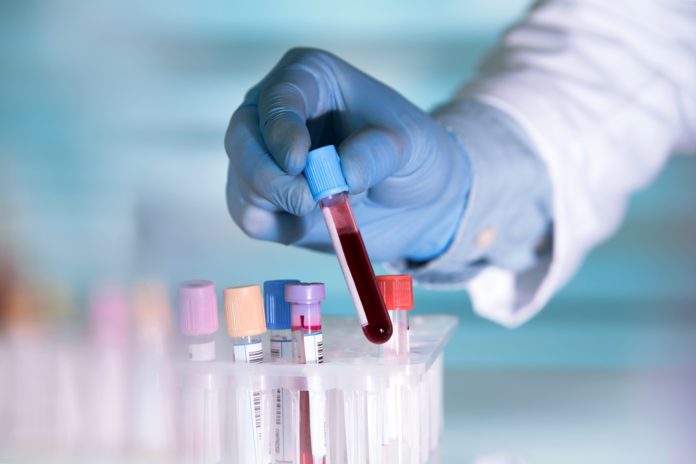The district court denied LabCorp’s motion for summary judgment in a qui tam case alleging violations of the False Claims Act and Anti-Kickback Statute. The relators alleged that LabCorp was aware that physicians who ordered blood sample collections were accepting kickbacks from other testing laboratories in the form of processing and handling fees. LabCorp argued that there was no evidence that the blood drawn by its technicians was sent to the third-party labs for processing, but the court found sufficient factual disputes to preclude summary judgment. The court found sufficient evidence to show that the third party labs paid kickbacks, that LabCorp was aware of this arrangement, and that LabCorp continued to draw blood for doctors receiving referral fees. The court concluded that a jury should consider the evidence and LabCorp’s liability.
Laboratory Corporation of America Holdings moved for summary judgment in a qui tam case alleging the defendant was aware that the blood sample processing services its employees performed were tainted by kickbacks paid to physicians by testing firms Health Diagnostic Laboratory and Singulex Inc. The relators claimed that LabCorp was aware that the third party testing firms paid physicians for referrals and that LabCorp also paid physicians for referrals for blood testing at their own facilities.
The court previously dismissed claims alleging medically unnecessary testing, reverse false claims, and violations of various state laws. The remaining claim alleges violations of the False Claims Act, on which LabCorp has moved for summary judgment.
The court denied the motion, finding multiple disputes of material fact as to whether LabCorp knew about the kickbacks or had acted in reckless disregard to the falsity of the information. The court found a dispute over the dates when LabCorp suspected or became aware that HDL/S paid process and handling fees to physicians in exchange for referrals for blood testing. The court cited evidence showing that LabCorp was aware of evidence of potential kickbacks at least a year earlier than suggested by the defendants.
LabCorp argued that there was scant evidence that its phlebotomists actually drew blood for the doctors receiving kickbacks, noting that multiple doctors testified that there were no LabCorp technicians in their practices or that a LabCorp technician did not draw blood that was later tested by HDL/S. However, the court noted that other physicians who testified were less certain that no LabCorp technician had drawn blood for testing by HDL/S.
LabCorp also asserted that after its compliance department investigated and became aware of the practice of technicians drawing blood for doctors who were paid P&H fees by HDL/S, certain LabCorp divisions stopped drawing blood for HDL/S testing, required doctors to certify that they were not receiving P&H fees, or instituted a $5 draw fee on the doctor. However, the court found it unclear whether all LabCorp divisions instituted such practices.
Finally, the court found no dispute that LabCorp, acting anonymously through counsel, requested that the HHS Office of Inspector General issue a Special Fraud Alert identifying HDL’s payment of P&H fees as a potential violation of the AKS. LabCorp argued that the requests were evidence that it attempted to curb HDL’s kickback-paying practice, perhaps without sacrificing its own separate relationship with the kickback-receiving doctors. However, regardless of LabCorp’s intentions, the court found that a jury could consider these requests to be evidence that LabCorp knew of HDL/S’s practices and turned a blind eye.
The court found that a reasonable factfinder could find that LabCorp’s conduct—drawing blood for doctors to refer to HDL/S for testing in exchange for kickbacks—was a substantial factor in the presentation of the claim and that it was or should have been foreseeable to LabCorp that such claims would be presented.
First, the court found evidence that LabCorp’s technicians did draw blood that doctors referred to HDL/S for testing in exchange for referral fees. LabCorp argued that no reasonable factfinder would conclude that the blood draws were a substantial factor in the submission of false claims, because some physicians testified that they would have ordered the blood to be drawn regardless of whether it was drawn by a LabCorp phlebotomist. However, the court found this irrelevant. Rather, the court found the issue was whether LabCorp technicians drew the blood, which the evidence showed. Second, the court found it reasonable to conclude that LabCorp could foresee that HDL/S would present claims for reimbursement for those tests. Therefore, the court denied the motion for summary judgment on the claim of knowingly causing the submission of false claims.
Regarding scienter, the relators argued that LabCorp’s practice of allowing “courtesy draws” was an illegal inducement reflecting that the defendant was aware of the kickback scheme. Through this practice, LabCorp technicians would draw two samples from a patient with a single procedure, sparing the patient from the need to have blood drawn separately for each test. LabCorp argued that because there was no governing law or regulation identifying courtesy draws as improper, there was no material dispute that courtesy draws were not unlawful inducements. Rather, LabCorp argued a jury could reasonably find that courtesy draws for doctors were merely a pre-existing policy intended to protect patients from two procedures.
However, the court found a jury also could reasonably conclude that these particular courtesy draws, for these doctors whom LabCorp knew were receiving P&H fees, were collected by LabCorp to induce doctors to make testing referrals. Therefore, the court denied the motion for summary judgment on the claim of knowingly presenting false claims.
Finally, the court considered the motion for summary judgment on the conspiracy claim. The court found sufficient evidence to show that HDL/S paid kickbacks, that LabCorp was aware of this arrangement, and that LabCorp continued to draw blood for doctors receiving referral fees. However, the court also noted that LabCorp’s bills to physicians for blood draws including the processing and handling fee. The court found enough of a factual dispute to preclude summary judgment.




